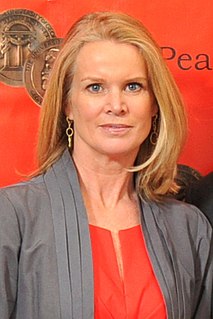A Quote by John Flanagan
It's surprising how often history is decided by something as trival as bad shellfish.
Related Quotes
You are doing something over here and over there someone is telling you a joke, or giving you an important piece of information about sanitation, and no matter how weird the other subject is, there is a connection, or you can make a connection. I’ve always loved history and history is collage, it is a juxtaposition of the good and the bad and the strange, and how you place those sentences together changes the whole mood of a history.
Everyone tries to create a world he can live in, and what he can't use he often can't see. But the real world is already created, and if your fabrication doesn't correspond, then even if you feel noble and insist on there being something better than what people call reality, that better something needn't try to exceed what, in its actuality, since we know it so little, may be very surprising. If a happy state of things, surprising; if miserable or tragic, no worse than what we invent.
If you choose not to act, you have little chance of success. What’s more, when you choose to act, you’re able to succeed more frequently than you think. How often in life do we avoid doing something because we think we’ll fail? Is failure really worse than doing nothing? And how often might we actually have triumphed if we had just decided to give it a try?
After school, I went to Damascus to study law and history, which I didn't really like. I didn't like history, in particular. In Syria, the regime was trying to present to us a distorted version of the past. Assad was shown as the father of history. So I decided to shift to film, which was something I had always loved as a teenager.
As a young man, I was very interested in how people lived in earlier times; how they got from place to place, lighted their homes, cooked their meals and so on. So I went to the history books. Well, I could find out all about kings and presidents; but I could learn nothing of their everyday lives. So I decided that history is bunk.
































